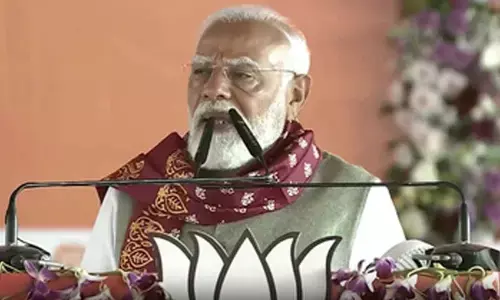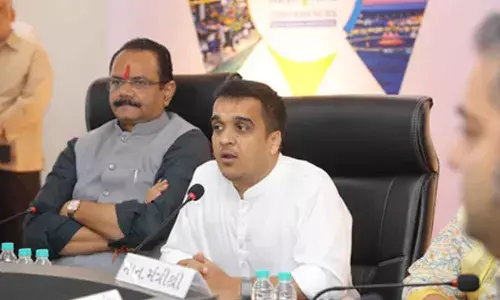How liberal arts degree help in developing critical thinking

Representational Image
A liberal arts education is broad-based, diverse, and interdisciplinary.
A liberal arts education is broad-based, diverse, and interdisciplinary. The approach to imparting education revolves around the thought that exposure to a vast range of subjects including humanities, social sciences, natural sciences, and mathematics will prepare students for a lifetime of learning and growth. Thus, as against vocational education, a liberal arts education encourages students to explore and pursue varied interests. Therefore their career paths are broader, enabling them to adapt to new and growing domains.
The term liberal arts has its origin in the Latin word ars liberalis which refers to the skills required of a free man—that is the skills of a citizen. Citizenship building covers the development of skills in political, economic, and socio-cultural dimensions. The political dimension needs advocacy, volunteering, dialogue, and the procurement of precise information. The economic dimension requires strong business acumen and skills to connect with the demands of the consumer and ensure that there is constant innovation. Political and economic dimensions of citizenship cannot be built without considering the socio-cultural aspect, as the former facets are embedded deeply in the latter. A liberal arts education can be considered an investment that helps students imbibe various skills required to build citizenship.
One of the most important skills that a liberal arts education provides is communication skills. This includes writing, speaking, and listening. These skills are sine qua non in any career path and are highly valued in every profession. Another skill that this form of education focuses on is creativity and out-of-the-box thinking. The entire pedagogy is geared towards making students think freely and guiding them to come up with new ideas, products, services, or methods. Liberal arts education also encourages problem-solving through an interdisciplinary approach rather than a single-faceted outlook. Free and flexible minds recognize that many areas of inquiry are interconnected and disciplines are permeable, not isolated domains.
All of the above is possible through strong training in critical thinking. Liberal arts education persuades students to think critically, question assumptions, and analyze complex problems. These skills are useful in every domain, which increases the allure of individuals who possess them. It is also a highly valued attribute of an entrepreneur. Critical thinking is defined as “the intellectually disciplined process of actively and skilfully conceptualizing, applying, analyzing, synthesizing, and/or evaluating information gathered from, or generated by, observation, experience, reflection, reasoning, or communication, as a guide to belief and action.” Critical thinking is thus achieved through a set of mental practices that broaden the thought process rather than it being monolithic.
Training in critical thinking can be imparted by involving students in various exercises leading to reflection and reasoning. Asking open-ended questions and providing diverse perspectives is one of the most recognized ways to stimulate critical thinking. Some simple strategies and pedagogical methods used for developing critical thinking are questioning techniques, student-led discussions, inquiry-based learning, and collaborative and problem-based learning. The questioning technique persuades students to think about the why and how of any issue. Similarly, a student-centred learning environment promotes critical thinking skills by encouraging students to reflect on an issue and inquire into the same through a collaborative process, thereby involving multiple viewpoints. Finally, a problem-solving approach to learning sharpens critical thinking by exploring an issue, brainstorming the same, throwing up various solutions, and narrowing in on the best possible one given the circumstances.
Clearly, a liberal arts education provides for openness without fixed rules for navigating through life. This method of education helps create citizens who are skilled in problem-solving through teamwork and effective communication in the business, scientific, and technology sectors. It engenders thoughtful, humane, and productive citizens.
(The author is a Programme Chair & Professor of Economics School of Liberal Arts and Design Studies Vidyashilp University, Bengaluru)














